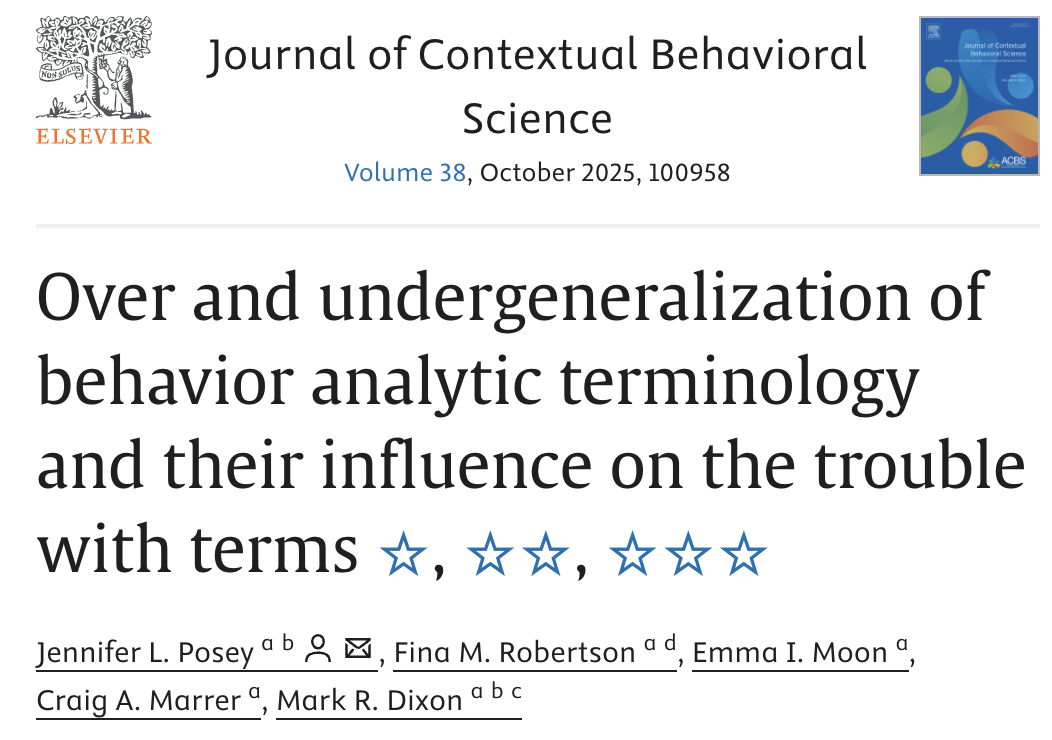Journal of Contextual Behavioral Science (JCBS)
Volume 38, October 2025
Authors
Jennifer L. Posey, Fina M. Robertson, Emma I. Moon, Craig A. Marrer, & Mark R. Dixon
Key Findings
- Behavior analysts may miss nuances defining terms as behavior analytic.
- Overreliance on jargon may reflect overgeneralization of terminology.
- Jargon can falsely signal analytic precision without functional meaning.
- ACT terms were often undervalued despite behavioral consistency.
- Findings underscore need for clarity in conceptual boundaries.
Abstract
Behavior analysts rely upon the use of technical terms to communicate with one another succinctly. At times, however, they are also called to translate terminology into lay terms, which may lead toward drift if there is insufficient understanding of the technology. To explore this issue, 139 participants, comprised of 102 board certified behavior analysts (BCBAs) and 37 that were not, evaluated 24 definitions across four terminological categories, including Applied Behavior Analytic (ABA), pseudo-ABA, Acceptance and Commitment Therapy (ACT), and mainstream psychological term definitions. Results showed that behavior analysts ranked ABA term definitions as most closely aligned with behavior analytic principles, with pseudo-ABA term definitions ranking as the second most, and ACT and psychological definitions ranking third and fourth, respectively. Statistical analyses supplemented visual inspection of the data and resulted in significance at the p < .001 level. Concerns about over and under-generalization of behavior analytic principles are discussed.
